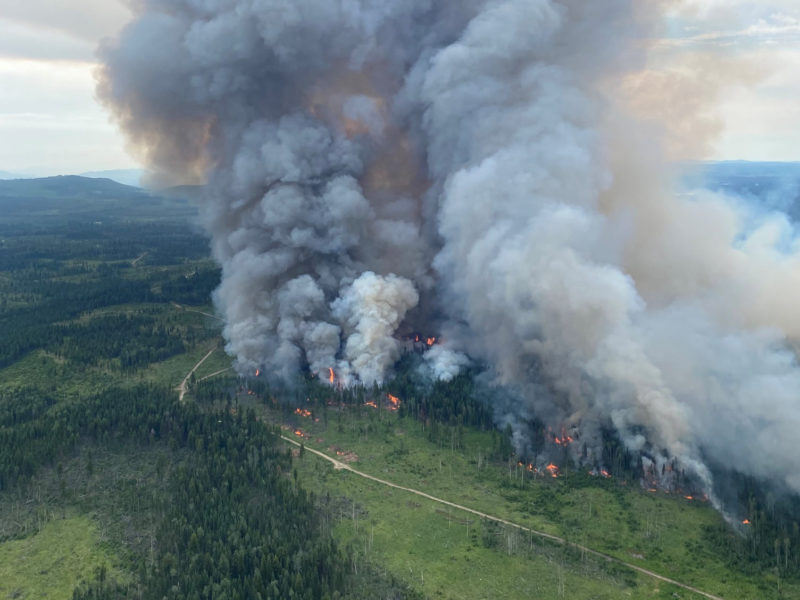Ranchers are on alert as more than 200 active wildfires burn across BC, many sparked following last week’s intense heat.
“We are moving into an unprecedented situation with fires. It’s 2017 on steroids in terms of fire activity. It’s so dry out there,” says BC Cattlemen’s Association general manager Kevin Boon.
Some ranchers have suffered losses from the current wildfires, and Boon is asking everyone to exercise caution when in the backcountry for either work or recreational purposes.
The province has also stepped in, banning campfires and open fires province-wide.
The province’s beef sector generally fared quite well during the heat wave, however.
“The cattle are out on range right now where they can get to … higher elevations where the temperatures are cooler,” Boon says. “They are also smart enough to know to sit in the shade and seek shelter in the trees during the day and graze at night. I think things are pretty good on the cattle front.”
Just as the fire activity was ramping up last week, the province urged livestock producers who had not yet registered with the province’s Premises ID program to do so. Premises ID allows provincial staff to assist in the rapid removal of livestock from areas under evacuation orders. Approximately two-thirds of producers have registered with the program.
The province says it has no numbers on livestock injuries and losses as a result of last week’s heat wave.
Broiler producers in the Fraser Valley lost approximately 20% of the birds they would normally ship to market last week, however.
“On the broiler side we’re about 400,000 lost. It’s very, very bad and devastating for the growers that lost them,” says Bill Vanderspek, executive director of the BC Chicken Marketing Board. “To put that in perspective, we produce approximately 2.2 million broilers a week here in BC, so we probably lost about 20% of one week’s production.”
Breeders, egg producers and turkey growers also saw loses from the heat wave, but Vanderspek said broiler producers saw the greatest losses because their birds tend to be younger and are bred to grow rapidly. These factors make them more vulnerable.
BC Egg Marketing Board executive director Katie Lowe said about 4% of BC laying hens fell victim to last week’s heat, primarily in the Fraser Valley and on Vancouver Island. This amounts to more than 130,000 birds.
“The one thing we have going for us is new facilities with tunnel ventilation,” said Lowe. “Those systems seem to do very well.”
Growers with ventilation systems to protect their flocks can obtain heat prostration insurance, Vanderspek said. Many of his growers who lost birds will be filing claims.


 Peace whipped by wild winds
Peace whipped by wild winds